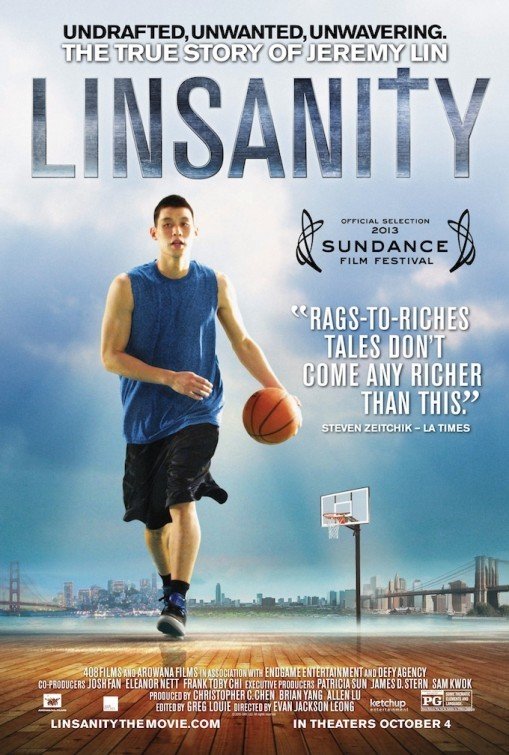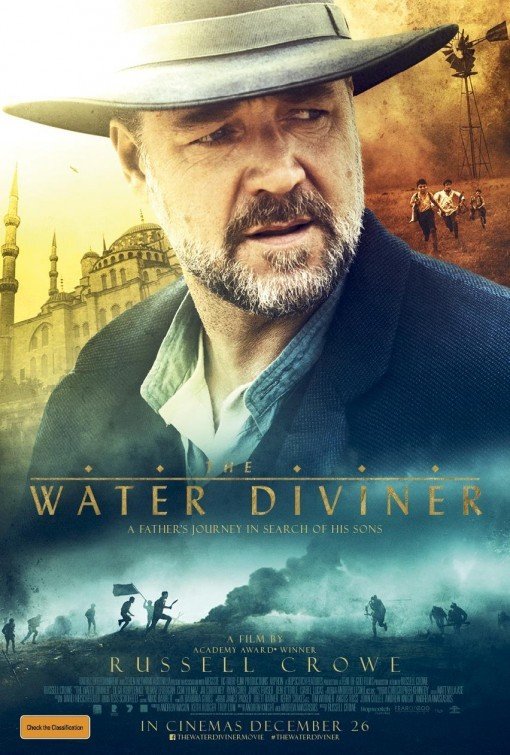“Pro-Muslim, Pro-Turkish, Occult Romanticism”

| None | Light | Moderate | Heavy | |
|---|---|---|---|---|
| Language | ||||
| Violence | ||||
| Sex | ||||
| Nudity |
What You Need To Know:
THE WATER DIVINER is beautifully filmed and acted, but the story structure, especially the ending, could be better. The good news is that the movie is relatively free of obscene content. Also, the violence is not extreme, despite some intense war scenes. The bad news is that the movie’s anti-patriotic worldview is abhorrent. THE WATER DIVINER not only contains occult content; but, it also whitewashes Islam and Muslim soldiers in World War I, who are shown in a most heroic light.
Content:
(RoRoRo, OO, FRFR, ABAB, RHRH, P, APAP, LL, VV, S, A, D, M) Very strong Romantic, liberal worldview, slightly mixed with strong occult content concerning using magic to find water and reading coffee grounds to predict the future, a positive view of Islam and Muslims and a positive (though tragic) view of battlefield euthanasia, with a couple Anti-Christian elements including priest is seen as an unforgiving, small-minded man, protagonist seems angry at God, and there’s an attack on the Christian idea that people who commit suicide can’t be buried in consecrated ground and are thus unsaved, plus strong revisionist history and some patriotic elements are overcome by an antiwar message and attacks on patriotism, especially patriotism among English-speaking Westerners; 12 obscenities (relatively light, but two “s” words and a couple crude insults) and two light exclamatory profanities; some strong (mostly war) violence includes soldiers shot and knifed, hand-to-hand combat, mortal shell sends man flying high in the air, man’s brothers come to help him, but they are cut down by machine gun fire, one dead soldier has very bloody wound on face, fatally wounded soldier screams during the night and eventually asks his wounded brother to kill him because he’s bleeding out before anyone can get to them and is in terrible pain, battlefield euthanasia, Muslim men start to beat up Australian man, but he’s saved by other Muslims, rancher finds his distraught wife has apparently drowned herself in a pond near their house, sandstorm overtakes three boys but their father shields them and him during the storm with a blanket from his horse (he was riding the galloping horse to them as the sandstorm approached); references to prostitutes in hotel who invite protagonist to come to their room later, but he doesn’t, and Muslim man wants to marry his widowed sister-in-law with his first wife’s permission (or so he tells the sister-in-law); rear male nudity from a distance as soldiers wash themselves in ocean; alcohol use; smoking; and, woman blames her husband for sending their three sons off to war where they were killed, Muslim Turkish soldier calls Allied soldiers godless, boy lies but is chastised by his mother, man covers up for boy who made a mistake.
More Detail:
The movie unfolds slowly. It opens in 1916 where Turkish troops are surprised one morning to find the British, Australian, Irish, and New Zealand troops gone from the battlefield at Gallipoli on the coast of Turkey.
Cut to 1919. Joshua Connor, an Australia rancher, uses divining rods to dig a well, where he does find water. The next couple scenes reveal that Joshua’s wife, Eliza, is distraught because their three sons died four years ago on the Gallipoli battlefield in Turkey during World War I. The next day, Joshua finds his wife has drowned herself in the pond next to their ranch house. In the next scene, Joshua is angry at the local priest, who at first declines to bury Eliza in consecrated ground because he doubts Joshua’s story that Eliza accidentally drowned. Joshua decides to go to Turkey and find the bodies of his three boys, who were left on the battlefield in 1916 when the Allied troops retreated.
In Istanbul, Joshua befriends a young Muslim boy and his beautiful widowed mother, Ayshe, but this doesn’t sit well with her brother-in-law, who wants to marry Ayshe even though he already has one wife. Ayshe tells Joshua how to get to Gallipoli against the British Army’s orders. Joshua goes there and finds that the Muslim major leading Turkish troops on Gallipoli is helping the British find bodies of their war dead so they can be properly identified and buried.
The Muslim major and the British officer leading this sad task take pity on Joshua and help him locate the place where the British troops were fighting. Using his occult divining powers, Joshua feels his way to the location where his three sons died together. A flashback shows one of the brothers getting hit by a mortar shell and the other two brothers coming to his aid, only to get hit by machine gun fire.
The British soldiers dig around the area, but only find the bodies of two of Joshua’s sons. Joshua soon learns that Arthur, the eldest son, was taken prisoner. So, the rest of the movie shows Joshua trying to track down his son, with help from the Red Cross and the friendly Turkish major. Complicating matters is that the son’s last known location is in the Turkish countryside where Turkish nationalists are fighting Greeks, the original inhabitants of the coastal regions.
Directed by Russell Crowe himself, THE WATER DIVINER could have been a great movie. It’s wonderfully filmed and acted, with some really nice scenes, especially between Joshua and the little Turkish boy. However, it seems to miss some plot points and pulls back from fully taking advantage of the story’s emotional possibilities or potential. For example, despite an intense action scene, the climax of finding out what happened to the missing son is not quite as thrilling or emotionally satisfying as it could have been.
Even more annoying, however, are scenes like the one where Joshua simply intuits the place where his sons died on the battlefield. The scenes of Joshua using occult divining powers are accompanied by scenes where Ayshe reads the grounds in Joshua’s coffee cup and correctly predicts that, once Joshua finds Arthur, he will show up again at the hotel she runs with her brother-in-law.
The movie combines this Romanticism and occultism with a generally positive view of Islam. Though the Muslim brother-in-law is seen as a bad guy in THE WATER DIVINER, his wrongful behavior is not associated with Islam per se. In contrast to this, the Turkish major is seen as a kind and honorable man, and these positive qualities are indeed associated with his worship of the Muslim god, Allah. Also, in a separate scene, Joshua visits the famous Blue Mosque in Istanbul, where he’s awed by its beauty. In contrast to this, Joshua’s priest back home in Australia is seen as an unforgiving, small-minded man with a small, plain, unimpressive church.
THE WATER DIVINER takes an antiwar position toward war in general and World War I in particular. World War I was indeed a brutal war that led to unnecessary death and destruction. Also, Gallipoli turned out to be a victory for the Turks and a defeat for the British, Irish, New Zealanders, and Australians, though Australia and New Zealand regularly commemorate their troops who suffered there. That said, Crowe uses his movie as a chance to tell a story about Gallipoli that attacks all ideas of patriotism, except, strangely, when it comes to the Turkish soldiers and their patriotism. In fact, at one point, Crowe’s character bitterly chastises himself for letting his boys go off to war, and, at another point, a Turkish soldier tells him that maybe Australians should think twice when they go off to a war in a far away land about which they know nothing. Of course, the same could be said about the Turks and their Islamic Ottoman Empire: that they shouldn’t have sided with Germany and against the British in the first place during World War I.
Ultimately, THE WATER DIVINER isn’t abhorrent for any foul language, extreme violence or explicit lewd content. In fact, it’s a pretty tame movie when it comes to those content categories. Instead, it’s the movie’s ill-considered Romantic, Pro-Muslim, Pro-Turkish, Anti-Christian, occult, and anti-patriotic content that turns what could have been a great story into a forgettable, unsatisfying one. Russell Crowe’s character is clearly mad at God for the death of his sons (for example, the movie says he stopped going to church with his wife the year that his boys turned up missing in action), but the movie never resolves his anger, one way or another. Also, the movie conveniently never mentions the Armenian genocide against Christians waged by Turkish Muslims and their Ottoman government, which started the very day, April 24, 1915, before the amphibious invasion of Gallipoli began by British-led troops (April 25, 1915). Patriotic Australians and Armenian Christians should deplore this movie, which is fatally and morally, spiritually and artistically flawed. Muslims in Turkey probably will love it, however.


 - Content:
- Content: 
